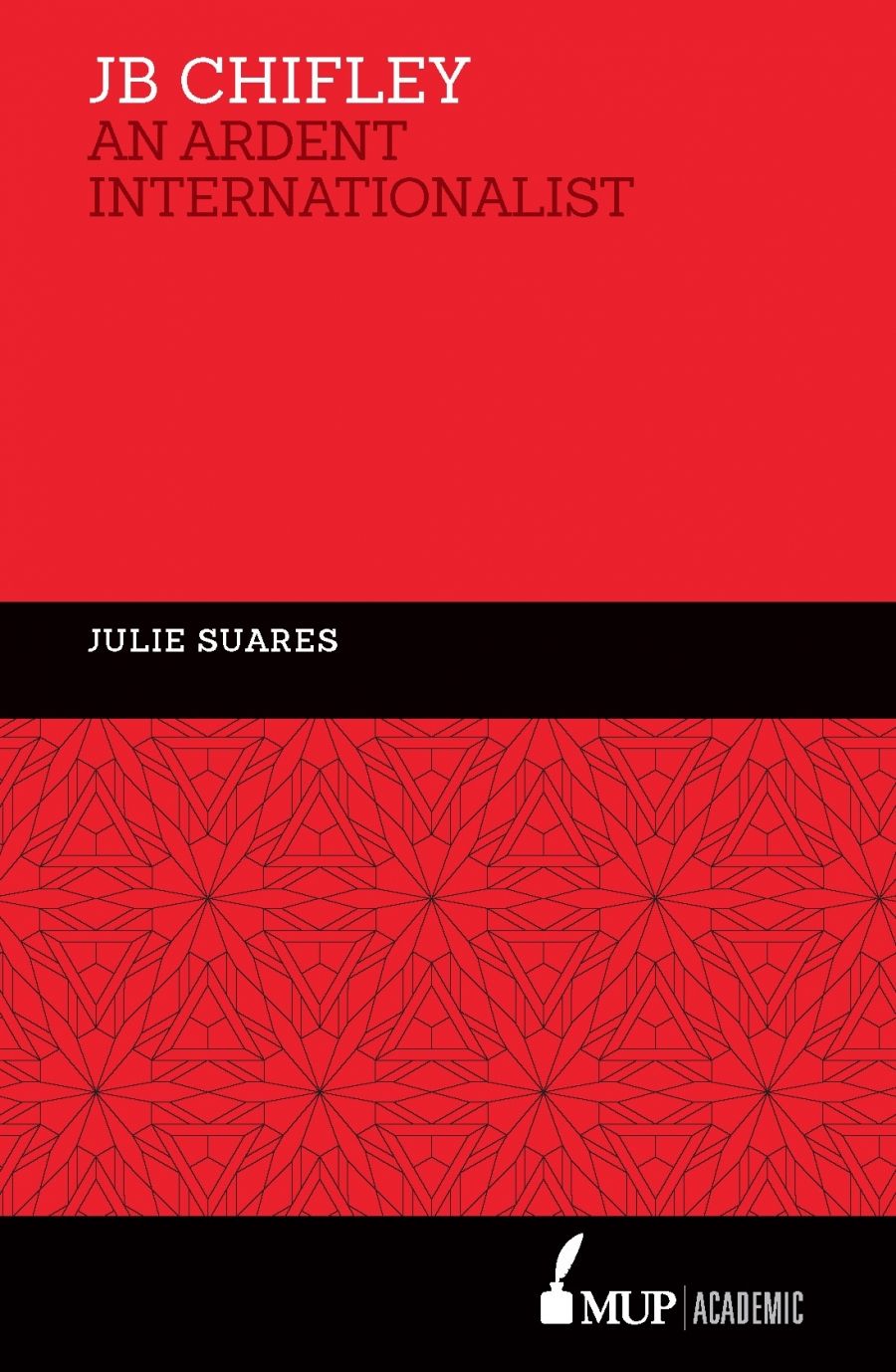
- Free Article: No
- Contents Category: Biography
- Custom Article Title: David Lowe reviews <em>J.B. Chifley: An ardent internationalist</em> by Julie Suares
- Review Article: Yes
- Online Only: No
- Custom Highlight Text:
One of the risks in writing about the history of Australia in world affairs is the ease with which ideas and visions can be flattened. If you start from the premise of Australia’s small-to-middle-power standing and diminished agency among other nations, you might conclude that ideas mattered less than adroit lobbying and alliances ...
- Book 1 Title: J.B. Chifley: An ardent internationalist
- Book 1 Biblio: Melbourne University Publishing, $49.99 pb, 432 pp, 9780522874693
The economic foundations of Chifley’s internationalism also informed his attitude towards European colonialism in Asia. Having travelled in Southeast Asia (a period of his life that Suares suggests has been too readily overlooked), Chifley saw firsthand the appalling contrast of impoverished workers and their colonial masters. As the Dutch found when attempting military actions against nationalists in Indonesia in 1948, Chifley had little time for colonial powers wanting to rebuild their empires after the war.
An intriguing feature of this book is Suares’s exploration of the closeness in thinking and personal affinity between Chifley and India’s first prime minister, Jawaharlal Nehru. Chifley admired his Indian counterpart and took the lead over his mercurial External Affairs Minister, Dr H.V. Evatt, in working to maintain India’s membership in the Commonwealth as it became a republic. Chifley shared Nehru’s view that improvements in social and economic conditions held the key to orderly decolonisation in Asia, rather than great power/Cold War politics. Suares argues that the Prime Ministers’ Conference in London, in 1949, saw ‘an extraordinary convergence’ of the world views of the two men. They shared a conviction in the need to adjust to changes, in internationalism and the role of the United Nations, and in rejecting both the Cold War lens through which London and Washington were inclined to view the world and the remaining manifestations of Western colonialism. There are limits to the ‘parallel lives’ argument that Suares tentatively invites here. Nehru’s thinking and stature in Asia mattered more to Chifley (and subsequently to an Australian-focused historian) than the other way around, but although their encounters were brief, they also seemed to enjoy each other’s company.
The connection to Nehru underlines a broader point. For all of Evatt’s well-documented energies, Chifley, argues Suares, was a key shaper of his government’s foreign policy more generally. In addition to resisting Cold War interpretations of events, Chifley was also prepared to embrace a less punitive approach to terms of a peace treaty with Japan – again, a position that was consistent with his economic internationalism and which ran against the grain of much party thinking and public sentiment.
None of this is to suggest that Chifley’s internationalism surmounted his local and political circumstances. Just as economics lay at the heart of much of his thinking, so too did economics provide the basis of his insisting on the White Australia policy. Jobs and wages would be threatened if immigrants of different races arrived. Nor did Chifley overlook opportunities to safeguard Australia’s defence, agreeing quickly to the British proposal in 1946 for long-range missile testing in the Australian desert.
An interesting sub-theme of this book is the view of internationalism glimpsed from the country rather than from Canberra exclusively. Suares makes good use of Chifley’s speeches during the 1930s that were fully reported in The National Advocate, a pro-Labor daily newspaper in his home town of Bathurst. She reminds us of the importance of public speeches in setting out the ideas of leading politicians, and in doing so signals the need for more explorations of rural-based internationalism – made easier now by Trove’s easy searching of Australia’s regional newspapers up to the mid-1950s. Her fine study of Chifley’s internationalism illustrates the benefits of research that connects local, national, international, and transnational.


Comments powered by CComment